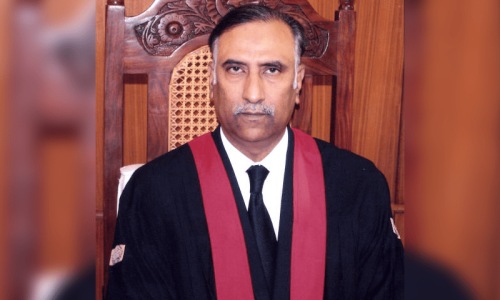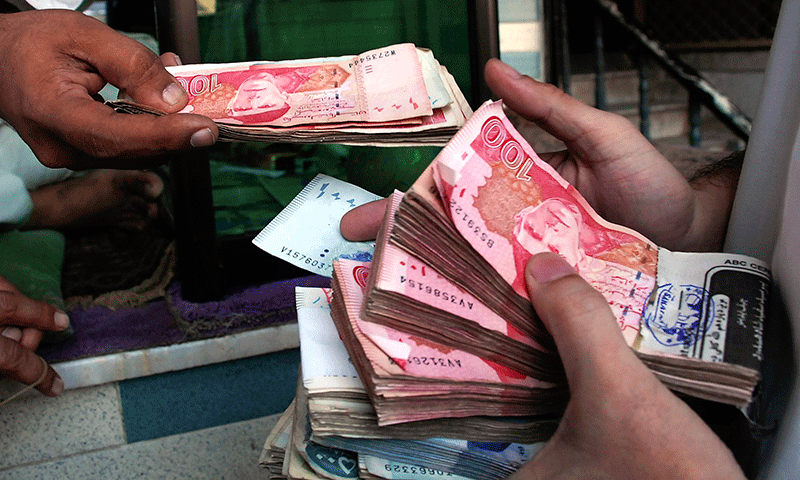TRUTH be told, the selection of the army chief has always been a political issue. How could it be otherwise in a country where the military has ruled directly for many years of its existence, and — with the establishment’s machinations — spent much of the remainder manipulating the political landscape, including through the once-powerful presidency, to ensure its preeminence? For civilian governments, therefore, a principal consideration in selecting the head of this powerful institution is to maximise the chances of its own survival — making this as political a decision as one could be.
Never before, however, has the impending appointment whipped up so much sound and fury. Courtesy Imran Khan’s fulminations, the issue has been made controversial to an unprecedented degree.
Having said only a few weeks ago that the opposition had nothing to do with the selection, the PTI chairman now appears to have made it into the holy grail of his campaign to regain power. At a rally in Chakwal on Monday, he again thundered that the army chief be selected on “merit” and that “thieves” should never be allowed to undertake the task.
Why Mr Khan is currently priming this issue as the main weapon in his arsenal is difficult to say. Perhaps it is a realisation that the pressure he is building on the establishment may be reaching critical mass and elections could be sooner rather than later; perhaps it is payback for the PDM having deprived him of the opportunity.
Read: Selecting the army chief
Certainly, part of the impetus behind the coalition’s no-confidence motion against the PTI government was its suspicion that Mr Khan as premier had settled on a particular general believed to have facilitated his rise to power — and kept the then opposition on the ropes — to be the next COAS. However, as the artificially engineered demise of several governments, including that of Zulfikar Ali Bhutto, Benazir Bhutto (twice) and Nawaz Sharif (twice) illustrate, institutional allegiance overrides all else.
So deeply embedded is this skewed power dynamic that the converse — the absence of meddling — also has political repercussions. Former prime minister Imran Khan himself has alleged that his government fell because the establishment chose a strategic ‘hands off’ approach. In other words, his undoing was the ‘neutral’ stance — which, it bears reminding, is a constitutional requirement for the military.
The civilian leadership must shoulder part of the blame for the extreme distortion of the political landscape. Extensions in the tenure of army chiefs, whose first beneficiary (under a civilian dispensation) was Gen Ashfaq Kayani during the PPP government, have further politicised what should be a routine appointment.
But that is part of a much bigger problem, one that stems from the fact that the military has repeatedly overstepped constitutional boundaries. Having queered this pitch throughout Pakistan’s history, it must suggest a way out and then leave governance to those elected by the people.
Published in Dawn, September 21st, 2022















































